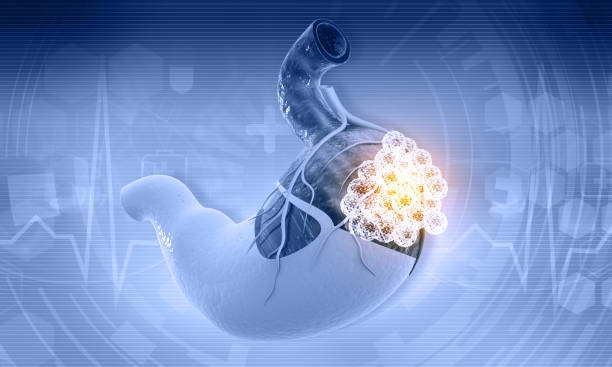Gastrointestinal (GI) cancers, including esophageal, stomach, pancreatic, liver, colon, and rectal cancer, cause a significant percentage of global cancer incidence. Cancers are typically asymptomatic during their progression, reaching more advanced stages before symptoms appear. Detection at an early stage is critical to improving prognosis, increasing survival rates, and enabling curative therapy. Recognition of early symptoms of early gastrointestinal cancer can be life-saving, with awareness and early screening being critical factors in the treatment of these conditions.
Understanding Gastrointestinal Cancers
Gastrointestinal cancers occur in the digestive system and related organs. The most common types are:
– Esophageal cancer
– Stomach (gastric) cancer
– Colorectal cancer
– Pancreatic cancer
– Liver cancer
– Gallbladder and bile duct cancer
Each has distinctions in symptoms, progression, and prognosis. However, the key to improving results in all of these types is early detection and immediate medical care.
Symptoms of Early Gastrointestinal Cancer
One of the challenges in the management of GI cancer is that its presenting symptoms may be nonspecific or more misleading than typical digestive ailments. However, they need to be recognized and seen by medical physicians early enough. Some of the early symptoms of early gastrointestinal cancer are:
– Indigestion or heartburn – Especially if not relieved by over-the-counter medication.
– Weight loss – Without a change in diet or exercise and an obvious explanation.
– Changes in bowel habits – Diarrhea, constipation, or narrowing of the stools.
– Presence of blood in stool or vomit – They can even trace amounts that should not be taken lightly as a matter of minor consequence.
– Weakness and fatigue – Due to anemia from internal bleeding.
– Loss of appetite – Less hunger or feeling full too quickly.
– Recurring or focal abdominal pain or discomfort.
These presentations are warranted for acute medical evaluation, particularly in those with risk factors of a history of GI cancer in relatives, smoking history, alcohol intake, obesity, or chronic inflammatory illness.
The Impact of Early Diagnosis on Prognosis
Early diagnosis of gastrointestinal malignancy immensely improves patient prognosis due to several reasons:
Higher Survival Rates
Early detected cancers are more likely to have higher survival rates. For example, the 5-year survival for colon and rectum cancer when still in its local stage is more than 90%, whereas it is merely 14% when found at metastatic level. Early detection typically implies that the cancer is still in its source and thus easy to treat.
Increased Treatment Options
Early-stage GI cancer patients are generally more likely to be candidates for a wider range of treatment modalities, including:
– Minimally invasive surgery
– Focal radiation
– Targeted therapy
– Immunotherapy
These treatments are usually less crippling and more effective than more aggressive therapy required at later stages.
Improved Quality of Life
Early cancer treatment typically carries fewer complications, shorter recovery time, and lower rates of recurrence. The patients therefore get to enjoy an improved quality of life both in and out of treatment.
Lower Healthcare Costs
Early treatment is likely to involve fewer hospitalizations, less painful surgery, and shorter recovery periods. This leads to lowered medical fees as well as lower economic costs for patients and medical professionals.
Methods of Early Detection
For early detection of cancer, diagnostic tools and frequent checkups are extremely crucial, especially in the case of high-risk patients. These are:
– Colonoscopy – It Detects polyps and early symptoms of colorectal cancer.
– Endoscopy – It will examine the esophagus, stomach, and small intestine.
– Fecal occult blood test (FOBT) – It will also detect occult blood in stools.
– Imaging tests – Is like CT scans, MRIs, or ultrasounds.
– Blood tests – For example, liver function tests or tumor markers (like CA 19-9, CEA).
Public health programs to increase awareness and improve access to such equipment are responsible for increasing early detection rates.
Awareness and Routine Checkups Importance
Recognition of early stomach cancer signs should be enhanced. Campaigns for education will encourage individuals to go see their physician early, especially those with chronic symptoms. Regular check-ups, especially in individuals over 50 years old or with a family history of cancer, are crucial for the detection of changes that could reflect cancer development.
Conclusion:
Early diagnosis has a great influence on the outcome of gastrointestinal cancers. Recognizing the warning signs of early gastrointestinal cancer, undergoing regular screening, and seeking medical care when a problem begins to develop can be life-saving. With advances in diagnostic technology and public awareness, an increasing number of patients are having their conditions identified at an early stage affording them much better chances for effective therapy and ultimate survival. If you or those close to you experience any suspicious symptoms, do not delay consulting a health professional.
FAQs
1. What are the early symptoms of gastrointestinal cancer?
The symptoms are persistent indigestion, unintentional weight loss, changes in bowel movements, hematemesis or melena, weakness, loss of appetite, and abdominal pain.
2. Why is the detection of gastrointestinal cancer so important?
Early detection increases survival, allows less invasive but more effective treatments, reduces complications, and improves the overall quality of life.
3. How can gastrointestinal cancer be detected early?
Early detection of gastrointestinal cancer can be done by regular screening tests such as endoscopy, colonoscopy, and sigmoidoscopy.
By screening tests such as colonoscopy, endoscopy, imaging studies, and blood or stool tests, especially in people at increased risk or 50 years and older.
4. What people are at risk of developing gastrointestinal cancer?
People who have a family history of cancer, chronic gastrointestinal illness, unhealthy diet, smoking, heavy drinking, or are overweight are at higher risk.
5. At what stage should one go see a physician for possible symptoms of gastrointestinal cancer?
If you have persistent digestive issues, unexplained weight loss, or any of the mentioned symptoms for several weeks, consult a doctor for assessment and possible diagnostic examination.


